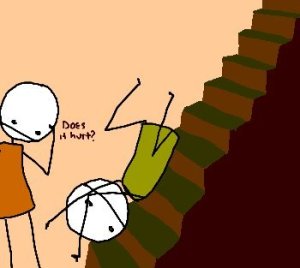 When Dr. Victoria Seewaldt of Duke University School of Medicine reviewed a controversial new book about osteoporosis in the Journal of the American Medical Association* in 2005, she started off as an admitted skeptic. The review was for Gillian Sanson‘s book, The Myth of Osteoporosis: What Every Woman Should Know About Creating Bone Health. The book’s premise challenged almost every truism that most doctors believed – and may still believe – about osteoporosis.
When Dr. Victoria Seewaldt of Duke University School of Medicine reviewed a controversial new book about osteoporosis in the Journal of the American Medical Association* in 2005, she started off as an admitted skeptic. The review was for Gillian Sanson‘s book, The Myth of Osteoporosis: What Every Woman Should Know About Creating Bone Health. The book’s premise challenged almost every truism that most doctors believed – and may still believe – about osteoporosis.
Dr. Seewaldt is not only a physician, but also the daughter of an osteoporosis patient; her mother was diagnosed after fracturing a hip at age 72. She explained:
“Until her hip fracture, my mother was a ferocious shopper. Even in her early 70s, my mother would race down Fifth Avenue in New York City, shopping bags in hand, leaving me out of breath and begging for a rest.
“Then one day, my mother fractured her hip. Suddenly, our lives changed. For this reason, l initially approached Gillian Sanson’s book with significant reservations.”
But by the end of this book, Dr. Seewaldt found that her “reservations had turned to enthusiasm”. Continue reading

 It’s back-to-school time, warn the editors at Consumer Reports, and that means it’s time to answer an annual question:
It’s back-to-school time, warn the editors at Consumer Reports, and that means it’s time to answer an annual question: According to a trio of widely published American researchers, many of us are “over-diagnosed” by being labelled with a medical condition that will
According to a trio of widely published American researchers, many of us are “over-diagnosed” by being labelled with a medical condition that will 
 No matter what ails you, there’s a pill for it. And if nothing ails you, just wait. Pharmaceutical companies are working on drugs right now that just need a disease to treat. So let’s invent one! It’s what Big Pharma watchers call
No matter what ails you, there’s a pill for it. And if nothing ails you, just wait. Pharmaceutical companies are working on drugs right now that just need a disease to treat. So let’s invent one! It’s what Big Pharma watchers call  I was doing a little light reading in the Archives of Internal Medicine the other day. A
I was doing a little light reading in the Archives of Internal Medicine the other day. A